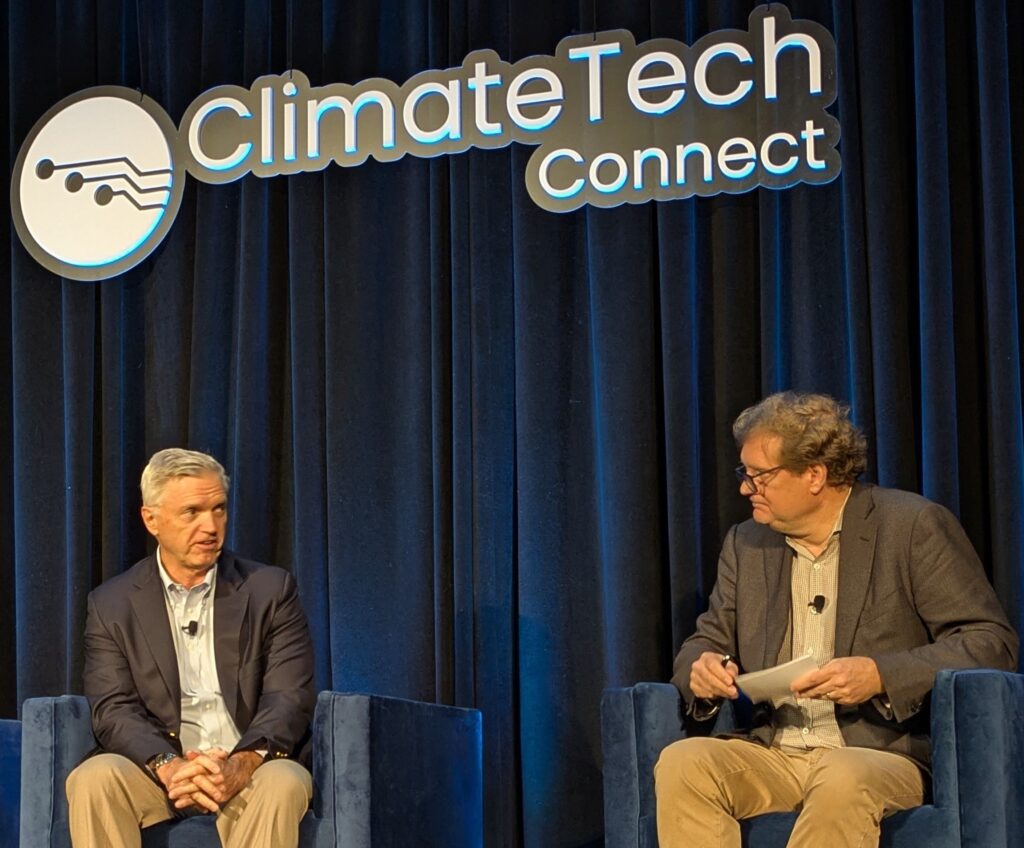
“Climate” is not a popular word in Washington, D.C., today, so it would take a certain audacity to hold an event whose title prominently includes it in the heart of the U.S. Capitol.
And that’s exactly what ClimateTech Connect did last week.
For two days, expert panels at the Ronald Reagan Building and International Trade Center discussed climate-related risks – from flood, wind, and wildfire to extreme heat and cold – and the role of technology in mitigating and building resilience against them. Given the human and financial costs associated with climate risks, it was appropriate to see the property/casualty insurance industry strongly represented.
Peter Miller, CEO of The Institutes, was on hand to talk about the transformative power of AI for insurers, and Triple-I President and CEO Sean Kevelighan discussed – among other things – the collaborative work his organization and its insurance industry members are doing in partnership with governments, non-profits, and others to promote investment in climate resilience. Triple-I is an affiliate of the Institutes.

You can get an idea of the scope and depth of these panels by looking at the agenda, which included titles like:
- Building Climate-Resilient Futures: Innovations in Insurance, Finance, and Real Estate;
- Fire, Flood, and Wind: Harnessing the Power of Advanced Data-Driven Technology for Climate Resilience;
- The Role of Technology and Innovation to Advance Climate Resilience Across our Cities, States and Communities;
- Pioneers of Parametric: Navigating Risks with Parametric Insurance Innovations;
- Climate in the Crosshairs: How Reinsurers and Investors are Redefining Risk; and
- Safeguarding Tomorrow: The Regulator’s Role in Climate Resilience.
As expected, the panels and “fireside chats” went deep into the role of technology; but the importance of partnership, collaboration, and investment across stakeholder groups was a dominant theme for all participants. Coming as the Trump Administration takes such steps as eliminating FEMA’s Building Resilient Infrastructure and Communities (BRIC) program; slashing budgets of federal entities like the National Oceanographic and Atmospheric Administration (NOAA) and the National Weather Service (NWS); and revoking FEMA funding for communities still recovering from last year’s devastation from Hurricane Helene, these discussions were, to say the least, timely.

In addition to the panels, the event featured a series of “Shark Tank”-style presentations by Insurtechs that got to pitch their products and services to the audience of approximately 500 attendees. A Triple-I member – Norway-based 7Analytics, a provider of granular flood and landslide data – won the competition.
Earth Day 2025 is a good time to recognize organizations that are working hard and investing in climate-risk mitigation and resilience – and to recommit to these efforts for the coming years. What better place to do so than walking distance from both the White House and the Capitol?
Learn More:
BRIC Funding Loss Underscores Need for Collective Action on Climate Resilience
Claims Volume Up 36% in 2024; Climate, Costs, Litigation Drive Trend
Data Fuels the Assault on Climate-Related Risk
Outdated Building Codes Exacerbate Climate Risk
JIF 2024: Collective, Data-Driven Approaches Needed to Address Climate-Related Perils

